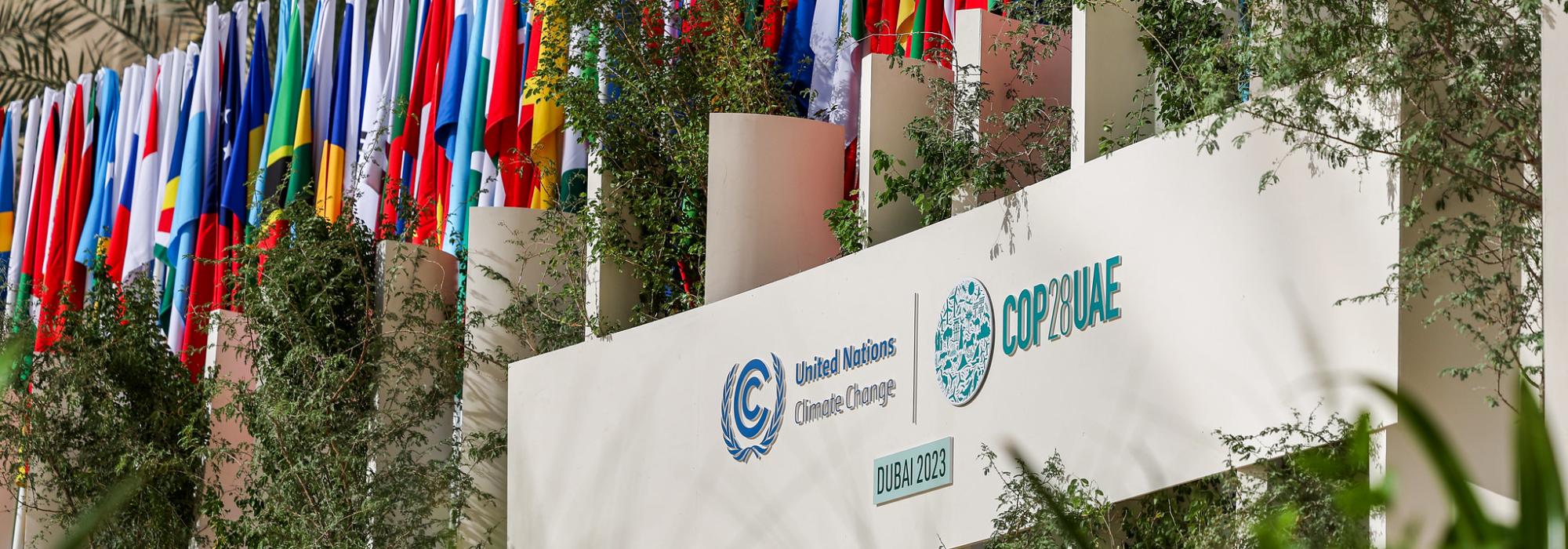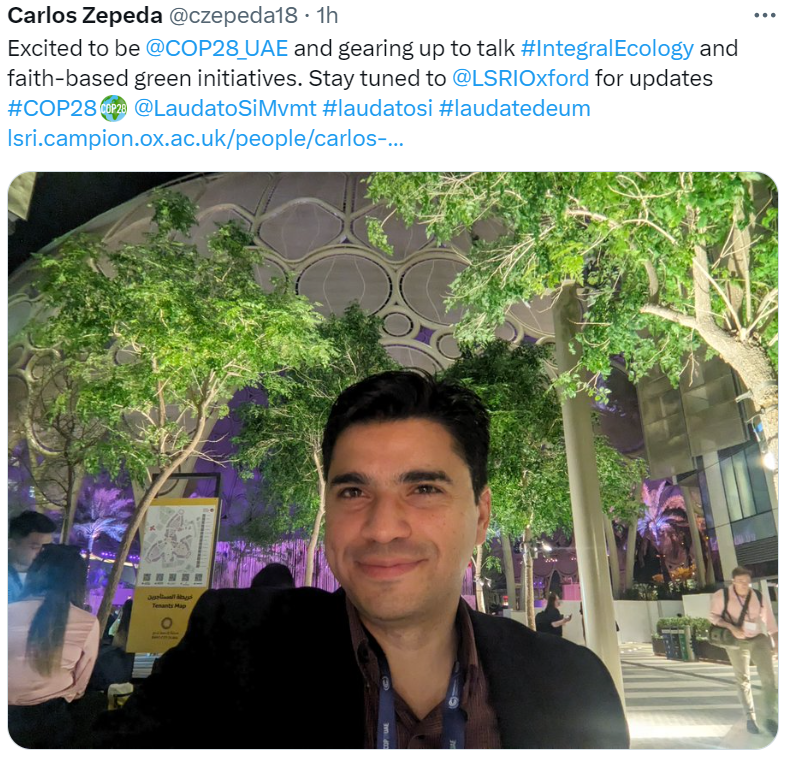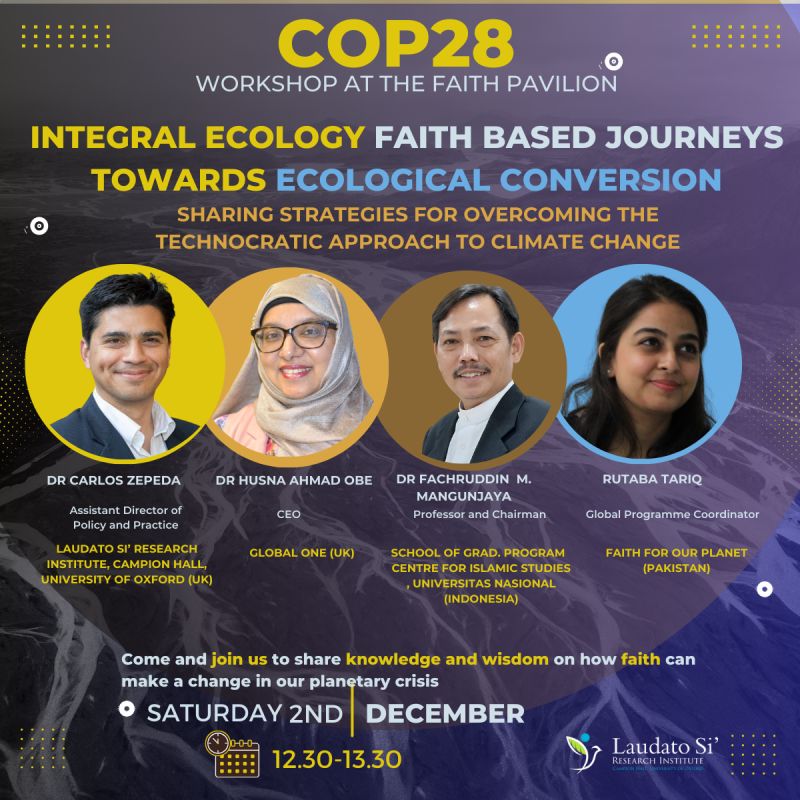
LSRI to Lead Integral Ecology Workshop at COP28
Key Details
 The Laudato Si’ Research institute is gearing up to play an active role in the upcoming 28th Conference of the Parties (COP28) to the UN Framework Convention on Climate Change (UNFCCC). Dr Carlos Zepeda, Assistant Director in Policy and Practice, is travelling to Dubai. Amongst various scheduled activities, he will deliver a workshop on integral ecology entitled “Integral Ecology Faith-Based Journeys Towards Ecological Conversion: Sharing Strategies for Overcoming the Dominant Technocratic Approach to Climate Change”.
The Laudato Si’ Research institute is gearing up to play an active role in the upcoming 28th Conference of the Parties (COP28) to the UN Framework Convention on Climate Change (UNFCCC). Dr Carlos Zepeda, Assistant Director in Policy and Practice, is travelling to Dubai. Amongst various scheduled activities, he will deliver a workshop on integral ecology entitled “Integral Ecology Faith-Based Journeys Towards Ecological Conversion: Sharing Strategies for Overcoming the Dominant Technocratic Approach to Climate Change”.
The workshop is part of the LSRI’s contribution to the first ever Faith Pavilion in the history of the COPs. This marks a significant moment for faith communities globally, as it signifies the recognition of the vital role faith communities play in tackling the climate emergency. Attended by over 50 faith organisations representing Roman Catholicism, Sikhism, Judaism, Hinduism, Baha'i, Buddhism, Indigenous religions, and Zoroastrianism, the Faith Pavilion offers an unprecedented opportunity for collaboration between different faith communities and with key stakeholders.

The workshop is a reflective dialogue that seeks to explore the different approaches adopted by diverse faith communities in addressing the ecological crisis and to map their role and efforts in trying to influence policy makers from a moral standpoint. The ideas and findings generated in the workshop will contribute to a co-authored essay slated for publication in The Polyhedron Magazine, an online integral ecology magazine currently in development.
Carlos sees this interfaith dialogue as a catalyst for change, drawing parallels with successful initiatives in his home country, El Salvador. He reflects, “in El Salvador, the world’s first ever anti-mining law was achieved by an ecumenical coalition of different faiths and civil society organisations that pushed to defend all life from pollution and mining, and to advocate for the human right to water. It makes me wonder how many other great examples of the collaborative power of faith groups and civil society organisations are out there. At the LSRI, we are enriching our research with faith-based stories of positive change in environmental governance. We believe this knowledge will spark more collaborations that contribute to bringing about systemic change.”
Building on its recent accreditation to the United Nations Environment Assembly of the UN Environment Programme (UNEP), and its seat in UNEP’s Faith for Earth Initiative Steering Committee, the Institute’s active participation in COP28 reflects its commitment to amplifying the voices of faith-based communities, including indigenous insights, in global discussions on environmental governance.
Looking beyond COP28, Carlos envisions using the workshop’s insights at UNEA-6 (the Sixth Session of the UN Environment Assembly) to propose impactful transformations for socio-ecological justice.
Header image: UN Climate Change /Mahmoud Khaled

